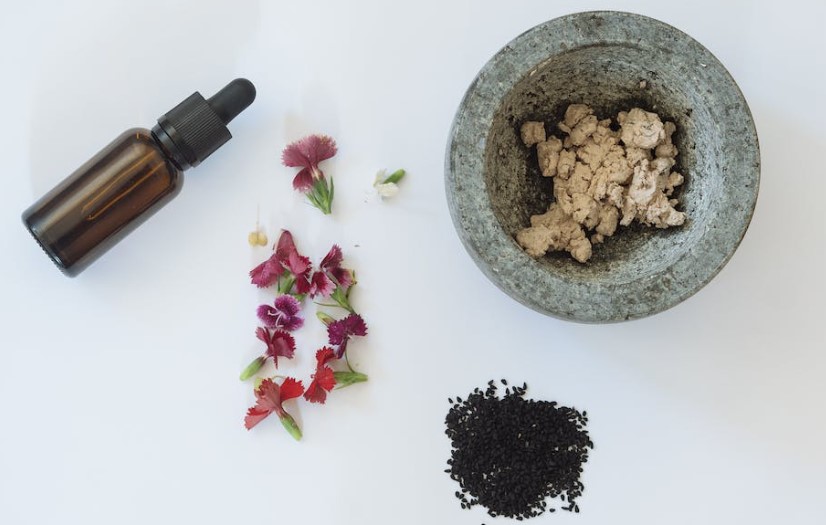Skincare: How to Achieve Flawless Skin & Why is it Important?
Skincare refers to the practice of taking care of the skin on your face and body to keep it healthy and looking good. This can include cleansing, exfoliating, moisturizing, and protecting the skin from sun damage. Skincare is important because it helps to maintain the health and appearance of your skin, which is the largest organ in the body and plays a key role in protecting you from the elements.
Skincare can also help to prevent and treat various skin conditions such as acne, wrinkles, and sun damage, and can help you to look and feel your best.. A good skincare routine can help to maintain the health and appearance of your skin, prevent and treat various skin conditions, and give you a healthy and youthful appearance.
Skin health refers to the overall health and well-being of your skin. It includes the appearance, texture, and condition of your skin, as well as its ability to function as a barrier to protect you from the environment. Factors that can affect skin health include genetics, lifestyle, and skincare habits. Beauty tips are suggestions and advice on how to enhance your appearance, including taking care of your skin, hair, and nails.
Tips can include things like using a gentle cleanser, exfoliating regularly, moisturizing, and protecting your skin from the sun. Keep in mind and remember that everyone’s skin is different, so what works for one person may not work for another. It’s important to be patient and consistent with your skincare routine and to consult a dermatologist if you have any concerns about your skin.
The Basics of a Basic Skincare Routine
A basic skincare routine usually includes the following steps:
-
Cleansing: This step involves using a gentle cleanser to remove dirt, oil, and makeup from your skin. Cleansing helps to unclog pores and prevent breakouts.
-
Toning: This step helps to balance the pH level of your skin and prepare it for the next step. It’s recommended to use a toner that does not contain alcohol.
-
Moisturizing: This step is important for keeping your skin hydrated and soft. It’s important to choose a moisturizer that is appropriate for your skin type.
-
Sun protection: This step is crucial for protecting your skin from the sun’s harmful UV rays. It’s recommended to use sunscreen with at least SPF 30, even on cloudy days.
It’s important to note that you should use products that are appropriate for your skin type and to be consistent with your routine. Also, you can add extra steps to your routine like exfoliating, using a face mask, or applying a serum.
Best Ingredients for your Skin Type to Achieve Flawless Skin
The best ingredients for your skin type will depend on your specific needs and concerns. However, some commonly recommended ingredients for different skin types are:
-
Oily skin: Salicylic acid, witch hazel, and tea tree oil can help control excess oil and reduce the appearance of pores.
-
Acne-prone skin: Benzoyl peroxide, salicylic acid, and tea tree oil can help clear breakouts and prevent new ones from forming.
-
Dry skin: Hyaluronic acid, glycerin, and ceramides can help hydrate and moisturize the skin.
-
Sensitive skin: Niacinamide, chamomile, and aloe vera can help soothe and calm the skin.
-
Anti-aging: Retinoids, Vitamin C, Peptides, and antioxidants can help reduce the appearance of fine lines and wrinkles.
It is important to note that every individual’s skin is unique, so it’s always best to consult with a skincare professional or a dermatologist to figure out the best ingredients for your skin type.
How to Choose the Right Products and Avoid Over-Priced Rip-Offs
Choosing the right skincare products can be a daunting task, especially with so many options available. Here are some tips to help you navigate the market and avoid over-priced rip-offs:
-
Understand your skin type and needs: Before making any purchases, it’s important to understand your skin type and what specific concerns you have. This will help you identify the ingredients and products that will be most effective for you.
-
Look for key ingredients: Understand which ingredients are best for your skin type and look for them in the products you’re considering. Many reputable brands will list the ingredients on their packaging or on their website.
-
Read reviews: Do your research and read reviews from other customers who have used the product. This can give you an idea of whether or not the product is worth the cost and if it’s effective for others with similar skin concerns.
-
Check for certifications: Look for products that are certified by organizations such as the National Eczema Association, the American Academy of Dermatology, or the National Psoriasis Foundation. These certifications indicate that the product has been rigorously tested and is safe for use.
-
Consider affordable options: there are many affordable skincare options in the market, such as The Ordinary, CeraVe, and Cetaphil, these brands offer a variety of effective, high-quality skincare products at a fraction of the cost of more expensive brands.
-
Don’t be swayed by fancy packaging and marketing: Expensive packaging and marketing campaigns don’t always mean a product is effective. Look beyond the packaging to the ingredients and reviews to make an informed decision.
It’s also worth noting that a high price tag doesn’t always mean a product is good and a low price tag doesn’t always mean a product is bad. It’s important to carefully read the ingredients and reviews before making a purchase to ensure that you’re getting a product that is both effective and worth the cost. Luxury skincare products are those that are typically higher in price and are made with high-quality, premium ingredients. They often claim to provide advanced skin protection and care and may be formulated with cutting-edge technology and the latest research in the skincare industry.
However, it’s important to cater that the term “luxury” can be subjective and is not regulated by any official body, so it’s important to do your research and read the product’s ingredient list and reviews to determine if it’s worth the cost. A combination of antioxidants, detoxifying agents, and protective ingredients makes the ideal product for optimizing your skin’s microbiome.
Clinical formulation refers to a skincare product that is backed by scientific research and is formulated to address specific skin concerns. It’s important to look for products that contain clinically proven ingredients and which have been tested in clinical studies, to ensure that they will be effective.
It’s also worth noting that while luxury skincare products may contain high-quality ingredients and advanced formulations, they may not always be necessary for everyone. A proper skincare routine, including cleansing, moisturizing, and sun protection can go a long way in maintaining healthy skin.
Moreover, also consult with a healthcare professional before making any changes to your skincare routine or trying new products, especially if you have any underlying health conditions or concerns, and determine the best skincare routine for your individual needs and budget.







